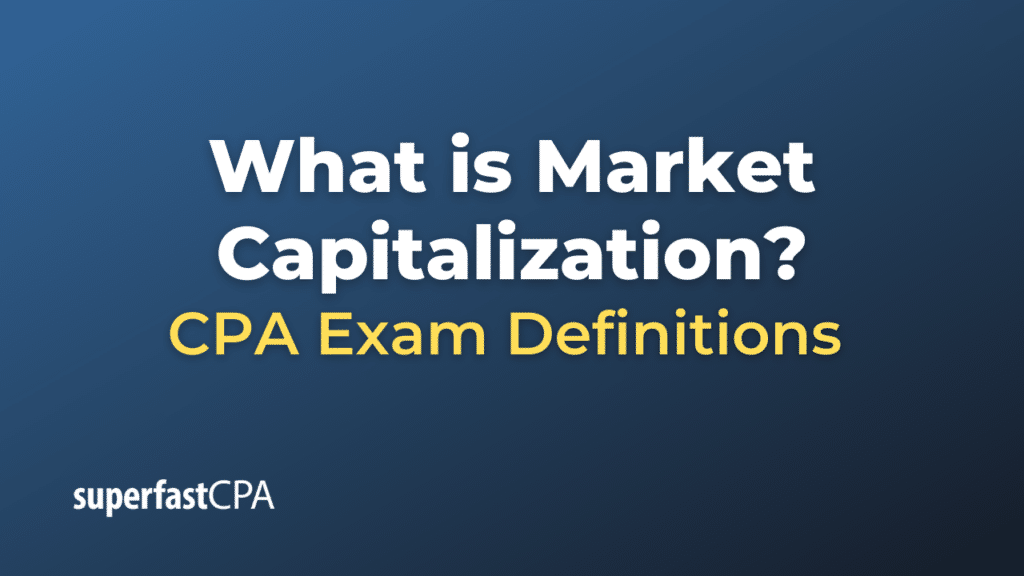Market Capitalization
Market capitalization, often abbreviated as market cap, is the total dollar market value of a company’s outstanding shares of stock. It’s calculated by multiplying the company’s total outstanding shares by the current market price of one share.
For instance, if a company has 1 million shares outstanding, and the current market price of each share is $50, then the market capitalization of the company would be $50 million (1 million shares * $50 per share).
Market cap is often used by investors to classify companies into different sizes for investment purposes. The commonly used categories are:
- Small-cap: Companies with a market cap under $2 billion.
- Mid-cap: Companies with a market cap between $2 billion and $10 billion.
- Large-cap: Companies with a market cap over $10 billion.
There are also the categories of micro-cap for very small companies, typically under $300 million, and mega-cap for the very largest companies, usually over $200 billion.
It’s important to note that while market cap gives an indication of a company’s size and how the market values it at a given point in time, it doesn’t necessarily reflect the company’s actual or intrinsic value, which can be influenced by a variety of factors including earnings, assets, debt, and growth potential.
Example of Market Capitalization
Imagine a hypothetical company, TechCo, which is traded on the stock market. TechCo has 100 million shares of stock outstanding, and the current market price of each share is $20.
To calculate TechCo’s market capitalization, we would multiply the total number of shares by the current price per share. In this case, that’s 100 million shares * $20/share, which equals $2 billion. Therefore, TechCo’s market capitalization is $2 billion.
This means that if you were to buy every available share of TechCo at the current market price, you would spend $2 billion. In practical terms, this gives us a way to compare the size and value of different companies.
However, it’s important to note that a company’s market cap can fluctuate as the price of its shares changes. If TechCo’s share price were to rise to $30, its market cap would increase to $3 billion (100 million shares * $30/share), reflecting the increased value the market is placing on the company. Conversely, if TechCo’s share price fell to $10, its market cap would decrease to $1 billion.
Remember, market cap is just one metric used by investors to evaluate a company. It doesn’t reflect a company’s underlying financial health or future prospects, and it’s important to consider it alongside other metrics and information when making investment decisions.













